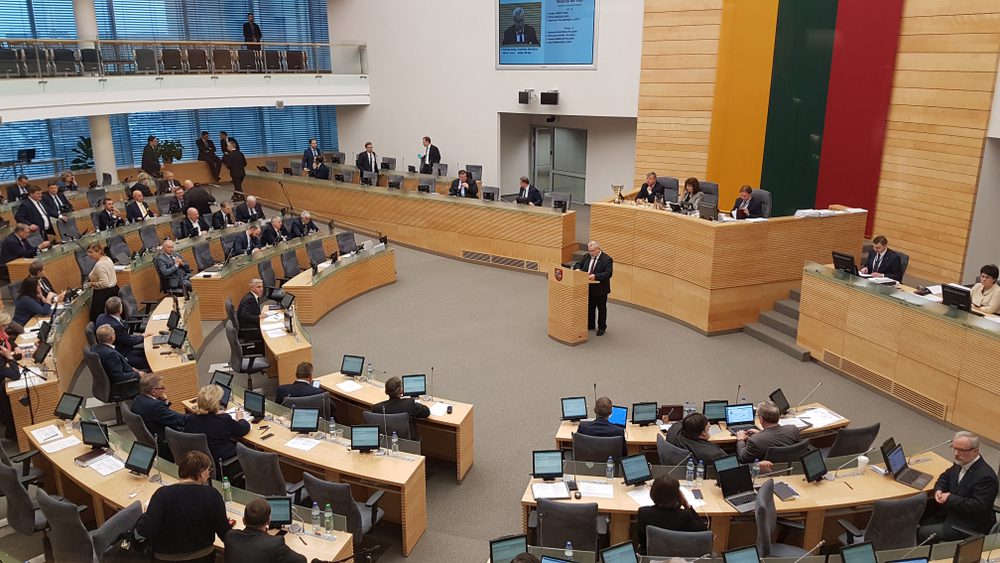
Lithuania’s ruling Homeland Union party has called for snap elections following the so-called “municipal expenses scandal,” but the opposition parties call for the government’s resignation right away, BNE Intellinews reported on Wednesday, May 24th. Meanwhile, Vilnius is preparing to host the annual NATO Summit in July, further complicating the crisis.
The scandal began as recently published expense reports aroused allegations that several municipal council members—who do not receive fixed salaries—may have abused expense reimbursement claims. Kaunas, Lithuania’s second-largest city, seems to be the epicenter of the outrage, as the local council members were not even required to provide invoices or receipts.
So far, the scandal has claimed only one victim, Education Minister Jurgita Šiugždinienė, who had been on the Kaunas Council before joining the government. She chose to resign when the entire government was asked to explain their expenses after the snowballing accusations reached the highest levels of Vilnius’ political elite.
The remaining members of the government—formed by a three-party coalition led by the center-right Homeland Union (TS-LKD)—stand fast in their decision to organize snap elections within a few months, despite the opposition parties, including the country’s most popular party, the social democrat LSDP, demanding their resignation right away.
“Let the ruling coalition form a new government—and if they fail, then we can speak about early elections, we would support it in that case,” said Saulius Skvernelis, leader of the leftist opposition party DSVL.
The ruling coalition, however, has a different solution in mind. Let them issue a parliamentary vote on the snap election, and if they fail to garner 85 votes in the 141-seat chamber, as needed for early elections—then they would offer their resignation.
After all, the center-right coalition members argued, the scandal equally affected—and will potentially affect—members of all major parties, governing and opposition ones alike. Therefore, calling for the government’s resignation is unfair, they said, suggesting to instead disband the entire parliament right away.
Meanwhile, all this stress has weakened the ruling coalition too, driving a wedge between the three parties—the conservative Homeland, the center-right Liberal Movement (LRLS), and the progressive Freedom Party (LP).
On Tuesday, May 23rd, Lithuanian Foreign Minister and Homeland Union Chairman Gabrielius Landsbergis invited the opposition parties to discuss the early election, but—presumably to protest the plan—the opposition groups refused to meet him. Meanwhile, Landsbergis managed to anger his own coalition partners as well by not consulting them before the event.
“No wonder the opposition won’t go to [Landsbergis] when he never even invited the ruling parties to discuss it,” Eugenijus Gentvilas, a senior member of the LRLS said, adding that the coalition might not survive the current crisis at all. “Formally, the coalition remains intact, but in spirit, does the coalition still exist?”
Regardless of what happens to the government, what Brussels would really like to know is whether this crisis will jeopardize the upcoming NATO Summit in July, the largest annual gathering of the heads of state of the Atlantic Organization.
Naturally, Landsbergis reassured everyone that Vilnius will not let this petty quarrel affect the summit in any way. “The NATO Vilnius Summit will be taking place with the fully functioning current government,” he said, adding that “the changes, if there are any, will take place only after NATO summit is over.”
